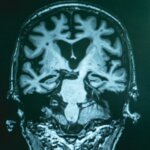Researchers at the University of Texas Southwestern Medical Center published their findings suggesting that neuropsychological evaluations of children initiated online can be effective. The findings appeared in the journal Archives of Clinical Neuropsychology.
The effectiveness of teleneuropsychology evaluations was established by recruiting 58 participants from the Children’s Medical Center Dallas. In the medical center, clinicians regularly treat a variety of conditions including multiple sclerosis, neuromyelitis optica, transverse myelitis, and acute disseminated encephalomyelitis.
The participants were between the ages of 6 to 20 and all received similar brief neuropsychological battery in-person and remotely through means of online communication.
“It was hypothesized that results obtained through in-person vs. remote videoconference sessions would not be significantly different and that most participants and caregivers would rate the experience with teleneuropsychology as satisfactory,” according to Lana Harder, and her colleagues, in their journal article.
“The current study is the first to validate home-based teleneuropsychology and is the first to validate teleneuropsychological assessment in a pediatric sample,” Harder concluded in the findings.
“Future studies should replicate these findings as well as expand on sample size, diversity of populations evaluated, and the assessment tools administered. Careful consideration of ethical and practical factors should be given before providing pediatric teleneuropsychology services.”
The study was also authored by Ana Hernandez, Cole Hague, Joy Neumann, Morgan McCreary, C Munro Cullum, and Benjamin Greenberg.


